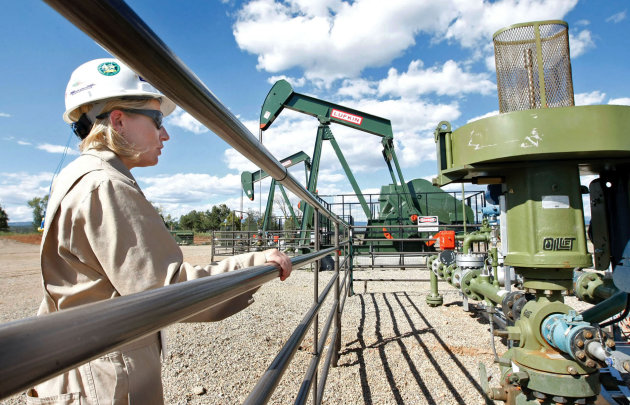I Spy Radio Show
This Week on I Spy on Salem Link to Dr. Daniel Fine--->
Google I-Spy Radio and download Dr Fine's podcast
So who's to blame for those high gas prices at the pump? Obama? George W. Bush? Oil speculators?
But a much larger puzzle is America's energy resources and our energy policy. We talk with Dr. Daniel Fine, an associate with the New Mexico Center for Energy to get a handle on all of this.
What role do speculators have in the oil prices? Is it all just more of the "blame game" by Obama? But what role does he have in it?
And if Republicans are secretly hoping high gas prices might hurt Obama's re-election campaign, find out why they may be in for a big surprise.
Click here to download the show
Note: link is not live until after the show airs
(Saturdays, 11-noon). Please be patient for the show to start when playing it within a browser window--typical file sizes are about 15MB.
Looking for the live show?
Our show airs Saturdays, 11-noon (Pacific Time) on KYKN-1430AM in the Salem area. Outside Salem? It can be heard live from anywhere in the world by going to 1430 KYKN - Salem is listening and clicking on the "Listen Live" tab.
While you're here, check out some of our past shows on such things as The Energy Trust of Oregon, Agenda 21, ICLEI, global warming skepticism, timber and logging, the EPA, and a lot more. Just head to the Past Shows tab.
Resources & Links from the Show
Below are links to our guest's websites, articles, and other information mentioned on the show or for more information.
Guest & Links mentions on the show
Dr. Fine's article on the effect of oil speculators
Another great article (not mentioned on the show): America's Energy Disaster from
the National Review Online
This Week on I Spy on Salem Link to Dr. Daniel Fine--->
Google I-Spy Radio and download Dr Fine's podcast
So who's to blame for those high gas prices at the pump? Obama? George W. Bush? Oil speculators?
But a much larger puzzle is America's energy resources and our energy policy. We talk with Dr. Daniel Fine, an associate with the New Mexico Center for Energy to get a handle on all of this.
What role do speculators have in the oil prices? Is it all just more of the "blame game" by Obama? But what role does he have in it?
And if Republicans are secretly hoping high gas prices might hurt Obama's re-election campaign, find out why they may be in for a big surprise.
Click here to download the show
Note: link is not live until after the show airs
(Saturdays, 11-noon). Please be patient for the show to start when playing it within a browser window--typical file sizes are about 15MB.
Looking for the live show?
Our show airs Saturdays, 11-noon (Pacific Time) on KYKN-1430AM in the Salem area. Outside Salem? It can be heard live from anywhere in the world by going to 1430 KYKN - Salem is listening and clicking on the "Listen Live" tab.
While you're here, check out some of our past shows on such things as The Energy Trust of Oregon, Agenda 21, ICLEI, global warming skepticism, timber and logging, the EPA, and a lot more. Just head to the Past Shows tab.
Resources & Links from the Show
Below are links to our guest's websites, articles, and other information mentioned on the show or for more information.
Guest & Links mentions on the show
Dr. Fine's article on the effect of oil speculators
Another great article (not mentioned on the show): America's Energy Disaster from
the National Review Online





